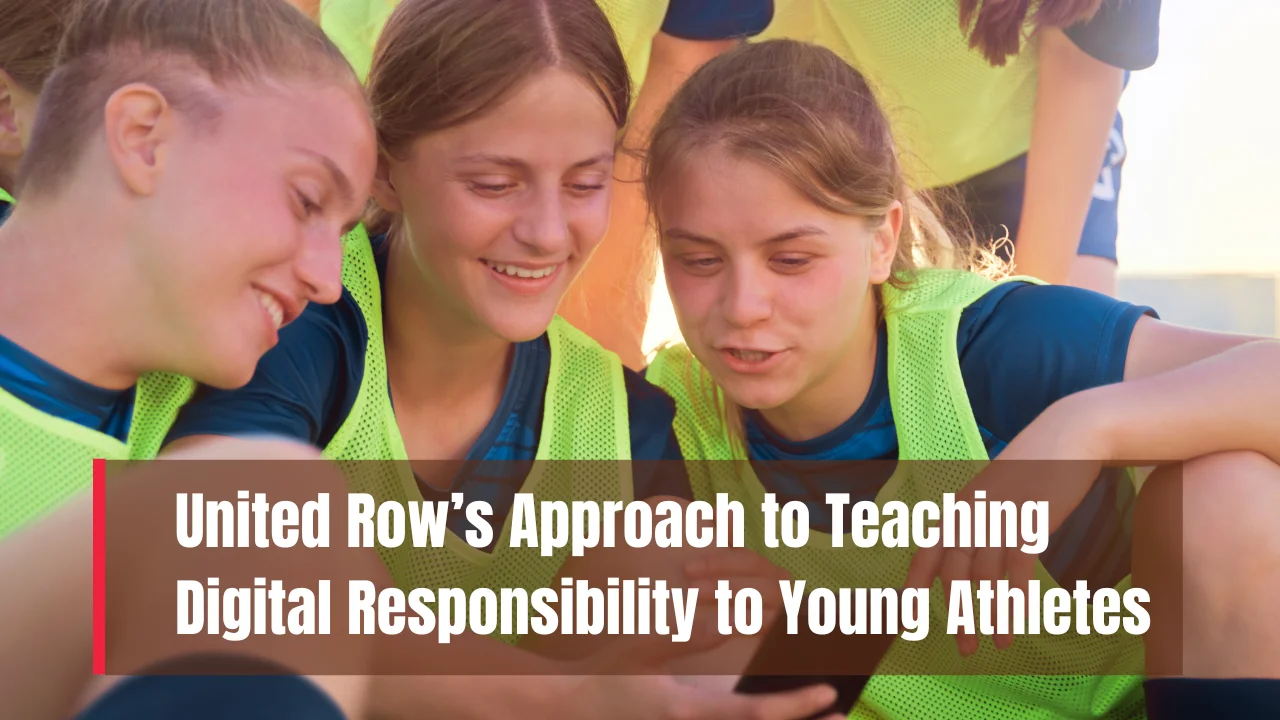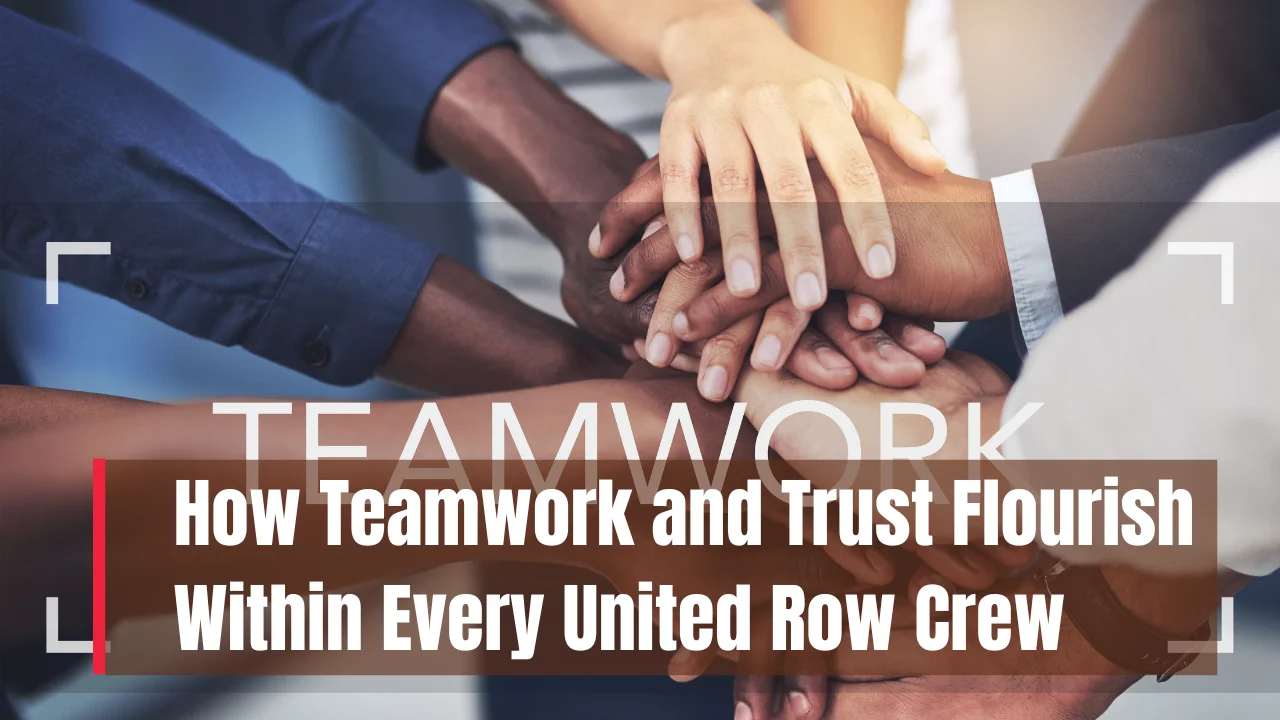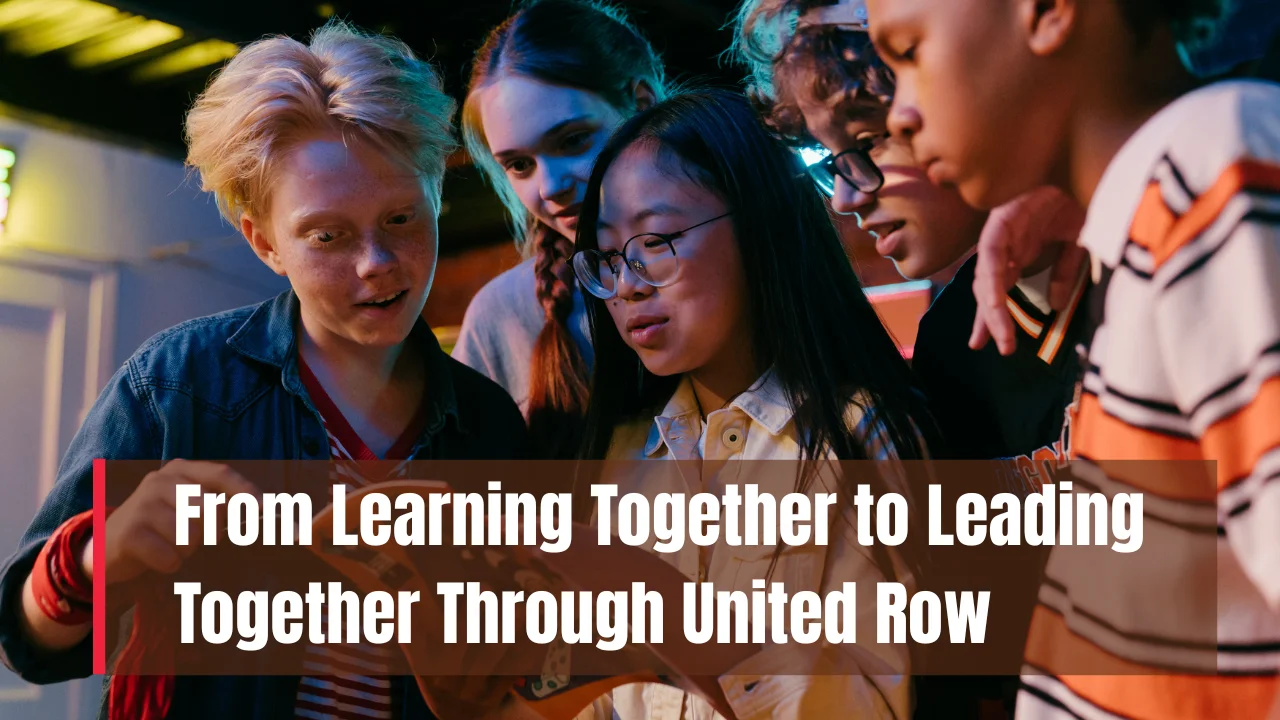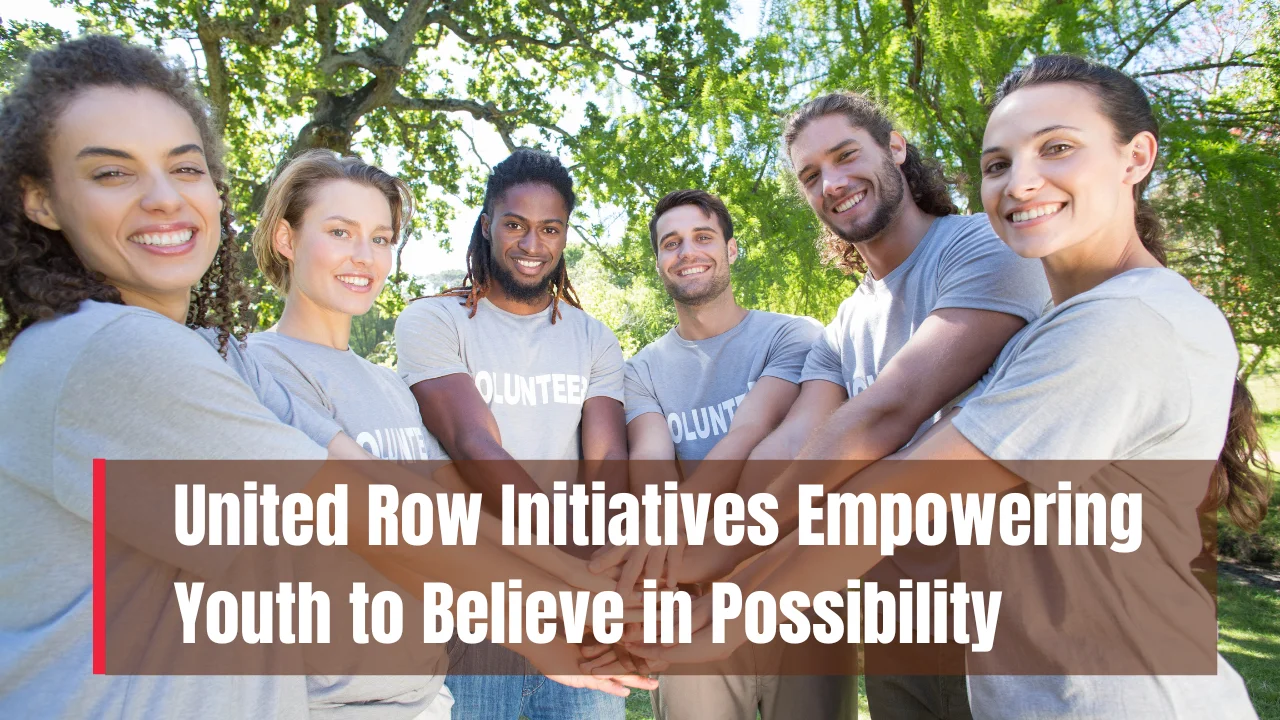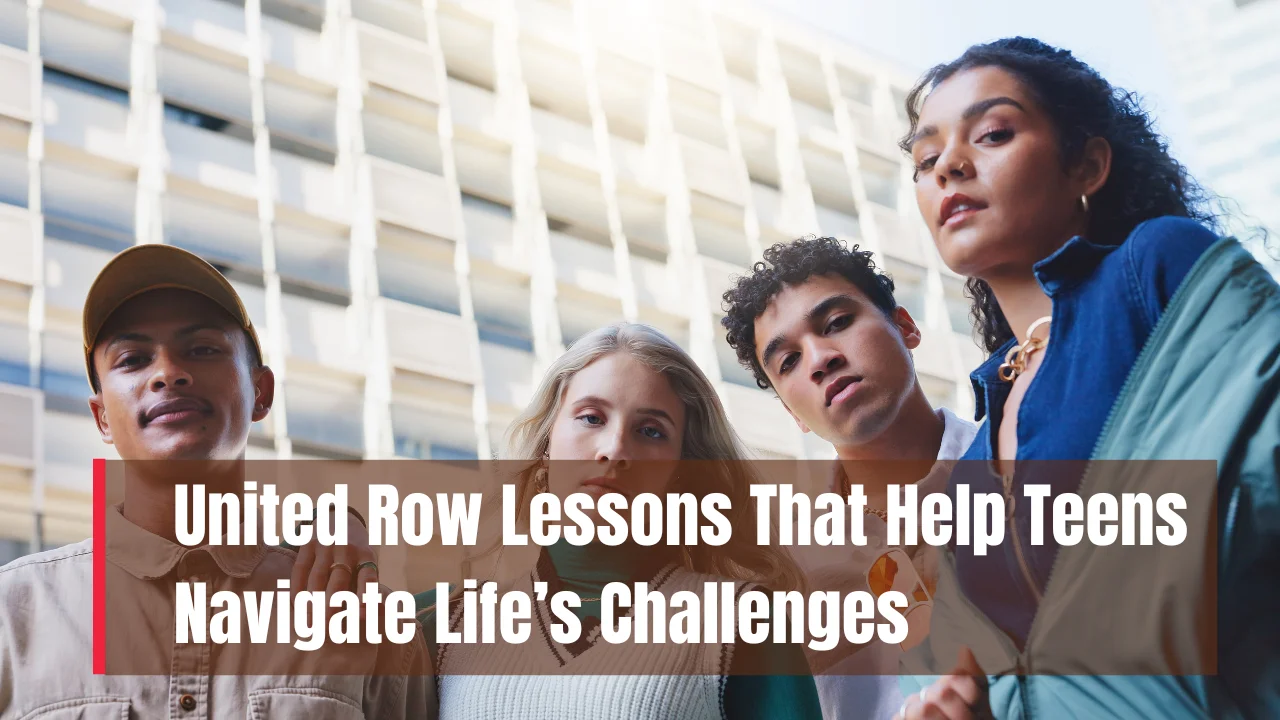Digital Responsibility for Young Athletes: Digital responsibility is no longer optional for young athletes growing up in a world where a single online post can shape public perception or impact future opportunities. In sports, talent is essential, but reputation—especially digital reputation—is what can define an athlete’s journey from a rising star to a lasting professional.
United Row has stepped ahead by recognizing that athletic training must include more than just physical performance. Their approach to digital education is thoughtful and proactive. This article explores how they equip young athletes to be smart, respectful, and strategic in their online behavior. Through unique training methods and real-world awareness, United Row is reshaping how sports programs think about digital conduct.
Digital Responsibility for Young Athletes
At United Row, digital responsibility isn’t just a side lesson—it’s a core part of how young athletes are prepared for the modern world. This term refers to the practice of making safe, respectful, and mindful choices online. For athletes with growing audiences and increasing visibility, understanding digital boundaries is crucial. Whether it’s avoiding harmful content, managing their public profiles, or building a personal brand, United Row helps athletes handle the digital world with maturity. Through education, discussion, and mentorship, they create athletes who are not only leaders on the field but responsible voices online.
Overview: United Row’s Digital Responsibility Program
| Key Element | Description |
| Social Media Behavior | Teaches athletes how to act responsibly and respectfully online |
| Online Reputation | Helps athletes build a positive digital image |
| Cyberbullying Prevention | Educates about recognizing and responding to toxic online behavior |
| Privacy Awareness | Instructs athletes on keeping personal information secure |
| Brand Building | Shows how to use social media to shape a professional presence |
| Parental Involvement | Engages families in reinforcing digital safety at home |
| Case Studies | Real-life examples to demonstrate the impact of online actions |
| Continuous Mentorship | Ongoing support and feedback from coaches and digital mentors |
The Need for Digital Responsibility in Sports
Young athletes today are not just representing their teams—they are representing themselves on public platforms every day. One careless comment, inappropriate photo, or thoughtless retweet can undo years of hard work. That’s why digital responsibility is critical from the earliest stages of an athlete’s career.
United Row saw this shift and decided to act. They understood that educating athletes on media literacy and online safety was as important as physical conditioning. By teaching athletes to think critically about what they share, who they interact with, and how they present themselves, United Row is protecting both their players and their future careers.
How United Row Leads the Way
Unlike traditional programs that focus solely on physical skills, United Row combines mental, emotional, and digital education. Their digital responsibility curriculum is seamlessly integrated into everyday training. It includes classroom sessions, guest speakers from the professional sports world, and simulated scenarios where athletes must decide how to respond to online situations.
A big focus is helping athletes understand the long-term impact of their online decisions. For example, a tweet sent in high school could resurface during a college recruitment or sponsorship meeting. By showing athletes real consequences and how others have recovered or failed from similar experiences, United Row makes digital learning personal and meaningful.
Core Areas of Digital Training
United Row’s training focuses on specific, actionable areas that directly relate to what young athletes face daily online:
- Social Media Etiquette: Athletes learn about tone, timing, and appropriateness in public posts.
- Cyberbullying Awareness: Training includes recognizing trolling and understanding when to disengage or seek help.
- Privacy Management: Athletes are shown how to set boundaries, protect personal data, and avoid oversharing.
- Positive Branding: United Row encourages athletes to use their voice to inspire, lead, and advocate for good causes.
These pillars give athletes not only digital awareness but also personal growth tools that extend far beyond the internet.
Benefits of Early Digital Education
Starting early makes all the difference. When athletes learn about digital responsibility at a young age, it becomes second nature. They no longer need to be reminded to think before they post or question the content they consume.
This early education also removes the fear factor from social media. Instead of viewing online platforms as risks, athletes begin to see them as opportunities to connect, grow, and lead. It builds their confidence and gives them the tools to deal with both praise and criticism professionally.
United Row’s athletes enter the college and professional space with an edge—not just because they play well, but because they behave well online.
Top 5 Lessons United Row Teaches
- Think critically about every post—nothing online is truly private.
- Treat your social media like a resume—make it reflect who you are.
- Don’t engage in negativity—ignore, report, or step away.
- Build your brand—celebrate your journey, values, and sportsmanship.
- Be aware of your followers—your audience includes family, fans, and recruiters.
These five lessons are easy to remember but incredibly effective. They give young athletes a clear framework to make responsible decisions on social media and beyond.
Two Important Digital Safety Practices
1. Controlling Your Online Presence
United Row teaches athletes to monitor their digital presence just like they track fitness goals. This includes regular audits of past posts, updating privacy settings, and curating content that reflects their values. With guided sessions, athletes learn how to Google themselves, clean up outdated content, and shape a digital profile they can be proud of.
2. Recognizing Red Flags Online
Scams, fake accounts, and online predators are real concerns. United Row includes in-depth training on identifying red flags, spotting impersonation attempts, and safely responding to suspicious activity. Athletes are taught to report issues to trusted adults and not handle serious matters on their own.
Impact of United Row’s Program
The success of United Row’s program isn’t just seen online—it’s reflected in the lives of the athletes. Parents report more thoughtful conversations at home, and coaches see greater maturity in how athletes conduct themselves online. Some athletes have even gained visibility and support from college programs after recruiters noticed their respectful and authentic online profiles.
United Row’s approach is unique because it doesn’t just react to problems—it prevents them. By turning digital literacy into a lifelong habit, they’re preparing young athletes for a world where image matters as much as performance.
Final Thought
United Row has redefined what it means to train a young athlete. It’s no longer just about winning games or breaking records—it’s about building strong, responsible individuals who can thrive in the spotlight. By making digital responsibility a foundation of their program, they’re setting their athletes up for success in all areas of life.
If you’re a coach, parent, or athlete, take a page from United Row’s playbook. Start the digital education early, and make it as important as physical training. The internet is watching, and the athletes of tomorrow need to be ready.
Want more tips or insights? Share this article and explore our other content designed to help athletes grow into confident, responsible leaders.
FAQs
Because athletes are often in the public eye, and what they share online can affect their career, relationships, and opportunities.
Through structured programs that include education, mentorship, case studies, and real-world examples tailored to young athletes.
As early as middle school, when many are first exposed to social media and online communication.
Absolutely. Many recruiters review online profiles as part of their evaluation process.
Yes, parents are included to reinforce lessons at home and support athletes’ digital growth.
